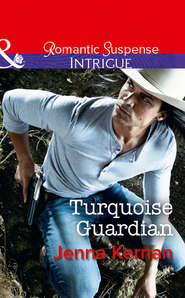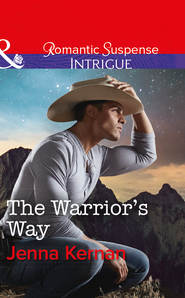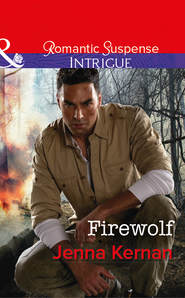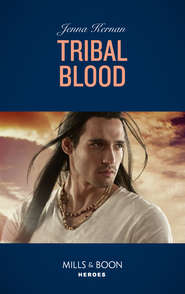По всем вопросам обращайтесь на: info@litportal.ru
(©) 2003-2025.
✖
Shadow Wolf
Автор
Год написания книги
2019
Настройки чтения
Размер шрифта
Высота строк
Поля
“I know that. But they’re all uninvited.”
“Like the Spanish and the Americans?”
Just then Kino picked up the sound of an engine. A moment later he saw the rooster tail of dust. He dragged Lea unceremoniously off the gate and shoved her behind the side of the truck bed. Then he swung his rifle out in front of him and rested it on the running board, taking aim.
“Stay behind the tire,” he ordered.
“Is he coming back?”
Kino gazed through the scope at the approaching vehicle. Was that his brother Clay or the Viper?
Chapter Four (#ulink_aafa7082-2202-5da7-952f-81e02db39b28)
The SUV emerged from the maze of sage and cactus. Kino blew away a breath and straightened as he recognized the vehicle.
“That’s my big brother Clay,” said Kino.
Lea stood on wobbly legs and he gripped her elbow to keep her from losing her balance. He held her long enough for her to regain her equilibrium and for him to lose his. She was a witness, an aid worker and a pacifist. Any one of those should be enough to send him running in the opposite direction. But they weren’t. Not even close. His hand tingled at the point where his fingers circled her bare arm, sending an electric sizzle of heat through him. He told himself to let go and didn’t.
Their eyes met and held. She could be only his witness, nothing more. He knew that, because he wasn’t getting mixed up with someone who spent her spare time breaking the law and wandering the desert alone without even a rifle for protection.
“You all right?” he asked, his hand relaying the softness and smooth texture of her skin.
“No,” she said and reclaimed custody of her arm.
Was she coming to the realization that her efforts might be helping the drug smugglers? That the reason they were in this very spot was because of her water station? Or was she just now realizing how close she had come to oblivion?
“I’m taking you in to headquarters at Cardon. We need a statement.”
She stepped farther away and rubbed the place where he had touched her as if to remove all memory of the contact. He noted the flush in her cheeks. Was it the heat of the day or their contact that caused that bloom of color?
“You’re detaining me?”
“Until we have your statement. They’ll interview you at Cardon.”
“Who will?”
“Border patrol.”
“I hate those guys,” she muttered and then said to him, “I’ve got to radio Oasis.” She patted the back pockets of her jeans and came up empty. Her eyes widened. “Oh, no, I was talking to her when this happened.”
She rushed back to the cab and searched for the radio from where it had fallen behind the driver’s seat as Clay pulled up, covering them with a fresh wave of grit and dust.
Kino went to speak to Clay, leaving Lea to her radio and check-in.
Clay pulled up in front of her truck.
“Any sign of him?” asked Kino.
“I’m sure there is. Everything that moves leaves a sign. But he was gone by the time I found the access road. What do you want to do?”
What Kino wanted was another shot, to go back in time and have Lea arrive ten seconds later. He looked toward the woman, scrambling in her truck to retrieve her radio. She’d seen the shooter’s face. The Viper. She could identify him.
Clay followed the direction of Kino’s gaze. “She okay?”
“Shaken.”
Clay nodded. “Understandable. So, do we chase him or question her?”
The need to hunt warred with the need to protect this woman who seemed to have no self-preservation instinct of her own.
“Her,” he said.
“Okay, then. We can wait for BP and then go cut for sign.”
Clay’s and Kino’s radios came alive simultaneously as their captain called in.
“Clay? Kino? Over.”
Clay lifted the radio. “Here, sir.”
“Border patrol is requesting you meet them at the closest access point. If you aren’t there, they’ll miss it.”
“No doubt,” muttered Kino.
“Yes, sir.” Clay glanced at Kino, who nodded. “On my way.”
“Can either of you identify the shooter?” asked Captain Rubio.
“Negative. Only witness is Miss Altaha.”
“From Oasis?”
“Affirmative.”
“Okay. Bring her for pickup by BP in twenty.”
“En route.”
Clay hooked his radio back on his shoulder and met Kino’s gaze. “I’m calling Councilman Mangan. He’ll want tribal representatives here.”
“Satellite phone’s in the car,” said Kino. “I’ll get Altaha.”
As he turned to collect their witness, he glanced at the four bodies. He had considered them no more than collateral damage, pawns in this game of chess. They weren’t the first to be killed execution style, stripped of the drugs and then left to rot. But they were the first he’d really noticed. He had his witness to thank for that.
What had she said—that they were people? He looked at them—really looked for the first time. The men were thin, dust-covered, wearing old trousers and new camo shirts provided for their journey. Their feet were sheathed in the odd shoes sewn from sections of carpet to obscure their prints from trackers like him. They’d been hired to carry a load with promises that it would earn them their passage. Instead they had earned a body bag. They’d been used and discarded, as if they were nothing more than the empty water jugs they had carried. Kino admitted to himself that he had used them, too. For him, they had been just a means to find the Viper.
The discomfort made Kino turn away.











